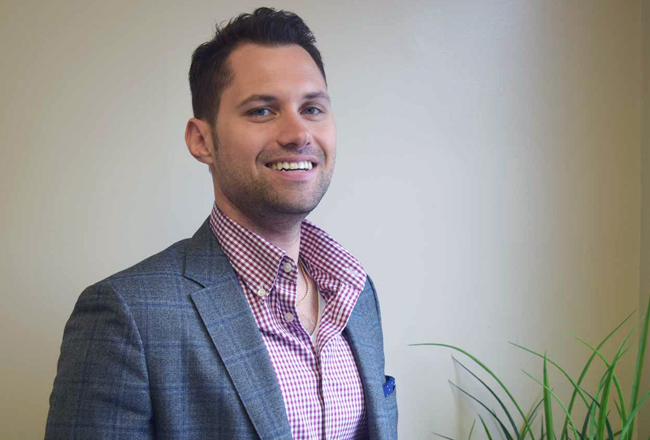
Inspiration for new businesses often comes as the result of a personal challenge. This was the case for Assisted Living Services, a senior home care agency that first opened in Meriden in 1996.
“The company was founded by my mom and dad,” recalled Mario D”™Aquila, the company”™s chief operating officer. “They noticed my great-grandfather was showing signs of dementia and, with my dad”™s background in nursing, and my mom had previous experience caring for seniors, they knew he needed 24-hour support because he couldn”™t stay home alone. Granted, he lived a few houses down from my parents, but when you have Alzheimer”™s or any dementia wandering is an issue, and that was an issue with him.”
D”™Aquila added that the senior home care agencies they sought out for assistance were mostly inadequate for their needs. “Someone would come over for an hour or two a day, and that was it,” he said. “My parents decided they could do better and hired a live-in caregiver who delivered the best care that anybody could provide. And they said, ”˜There is a use for this.”™ ”
Friends of the D”™Aquila family who had similar situations with their aged parents began to make inquiries on whether they could provide them with assistance. Assisted Living Services initially focused on the Hartford metro market and would later open a second market in Clinton. Last year, the company expanded into Fairfield County with an office in the town of Fairfield.
“We”™ve been growing very fast in this area and will outgrow this location in a year,” D”™Aquila said.
Assisted Living Services has about 450 caregivers who work with between 300 and 400 clients per day. Unlike 23 years ago when the D”™Aquila family struggled to find home care help, today”™s market is not lacking in competition.
“There are somewhere north of 650 home care services in Connecticut, and they all say ‘We”™re the best,’” D”™Aquila said. “What we”™ve noticed is that you have to prove it and you have to have value-add. You have to provide extra things to ensure the care is outstanding.”
One major differentiator for the company was the creation of a technology subsidiary that provides custom-tailored solutions for clients through a program called Care Plus, which is offered free to clients who require 40 hours or more of in-home care.
“Say it is a wander-risk client,” D”™Aquila said. “We can install different types of sensors around the home if the client decided to get off the bed and walk out the door. Other technology includes a bed pad or chair pad for fall risks. As soon as there is release pressure from a chair pad, it relieves pressure from where they are sitting and instantly sends a signal to the caregiver”™s pager to be alerted right away and help the client ambulate to where they want to be.”
Assisted Living Services offers three levels of care: a homemaker and companion level for light cleaning and an escort for appointments; a personal care assistance level that combines cleaning and cooking with activities including dressing and bathing; and a live-in service encompassing all services in a long-term overnight arrangement.
D”™Aquila acknowledged that senior home care services do not come on the cheap, but he pointed out that quality care could, in the long run, create savings at different levels.
“The value is what you want to keep an eye on,” he stated. “We don”™t want to deplete people”™s hard-earned savings, and it can be costly having someone in your home for an extended period of time doing hard work. But the cost compared to having mom and dad in a long-term nursing facility can be $500 or $600 a day, where having a long-term, live-in can range from $260 to $300 a day. It is a tremendous savings to keep mom and dad at home. And I tell customers be wary of the ones that are a little bit cheaper. I hate to say you get what you pay for.”
He is forecasting an expanded Fairfield County presence for the company.
“We would love to move into southern Fairfield County and moving up to the Danbury area would be definite,” he said. “We”™re scoping it out now. It”™s not just growing our company, but we are trying to shift home care and eldercare because a lot of baby boomers will be reaching the age of needing care in the next 10 to 20 years and there won”™t be enough care providers for all of these people.”





















